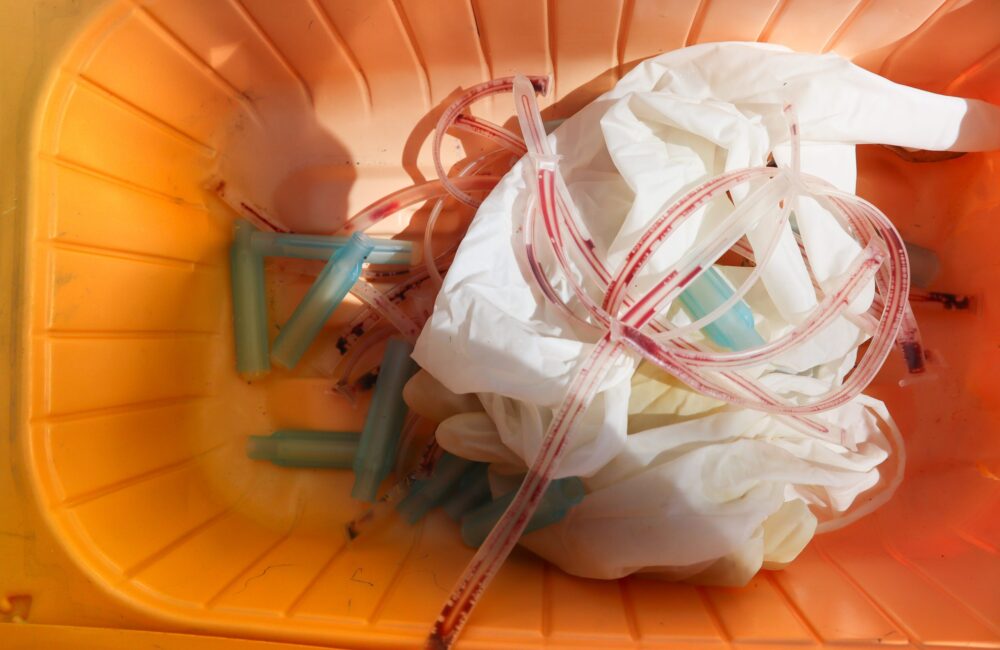The Impact of Dental Waste on the Environment

Dental care plays a crucial role in maintaining good oral health, but the industry also generates a significant amount of waste. This waste can have a negative impact on the environment if not managed properly.
In this blog post, we’ll explore the different types of dental waste and their environmental consequences. We’ll also discuss ways dental practices can minimize their environmental footprint and contribute to a healthier planet.
The Types of Dental Waste:
- Mercury: Dental amalgam fillings contain mercury, a toxic metal that can leach into the environment through improper disposal. This can contaminate soil and water sources, harming wildlife and potentially impacting human health.
- Plastics: A vast amount of plastic is used in dentistry, including syringes, gloves, packaging, and disposable tools. These plastics often end up in landfills, taking hundreds of years to decompose and potentially releasing harmful chemicals.
- Sharps: Used needles and other sharp instruments pose a biohazard risk and require special handling to prevent injuries and infections. Improper disposal can contaminate landfills and endanger sanitation workers.
- Pharmaceuticals: Expired medications and leftover anesthetic cartridges can end up in the water supply if not disposed of properly. This can disrupt ecosystems and potentially harm human health.
The Environmental Impact of dental waste:
- Mercury Contamination: Mercury bioaccumulates in the food chain, meaning it becomes more concentrated as it moves up the chain. This can pose a threat to fish and other wildlife, and ultimately, humans who consume contaminated seafood.
- Plastic Pollution: Plastic waste from dental practices can contribute to the growing problem of plastic pollution in our oceans and waterways. This plastic can harm marine life through entanglement and ingestion.
- Landfill Strain: The vast amount of dental waste that ends up in landfills takes up valuable space and contributes to greenhouse gas emissions as it decomposes.
Going Green in Your Dental Practice:
The good news is that dental practices can take steps to minimize their environmental impact. Here are a few key strategies:
- Reduce Mercury Use: Many countries are phasing out the use of dental amalgam. Explore alternative filling materials whenever possible.
- Recycle and Reuse: Implement recycling programs for paper, plastic, and other materials. Consider using reusable items where possible.
- Safe Disposal: Partner with a reputable medical waste disposal company to ensure proper handling of sharps, pharmaceuticals, and other hazardous materials.
- Invest in Sustainable Technologies: Look for energy-efficient equipment and digital solutions that can reduce paper waste.
- Educate Patients: Encourage patients to understand the importance of eco-friendly dentistry and support sustainable practices.
By taking these steps, dental practices can make a significant difference in reducing their environmental footprint and ensure a healthier planet for everyone.
Call to Action:
Ready to make your dental practice more eco-friendly? Visit our website green.udenz.co
Remember: Small changes within your practice can have a big impact on the environment. Let’s work together to ensure a healthy smile for everyone, while protecting the planet for generations to come.






